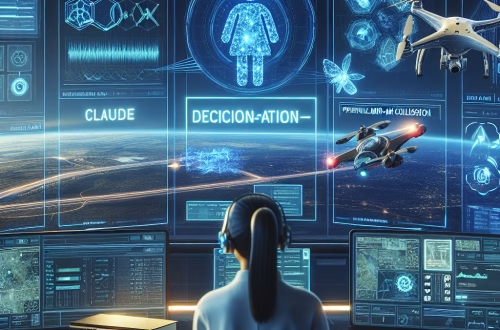AI for Personalized Learning Platforms
Summary:
AI-powered personalized learning platforms are transforming education by tailoring content, pacing, and assessments to individual learners. These platforms leverage machine learning, natural language processing, and adaptive algorithms to create customized learning experiences. Educators, students, and businesses benefit from improved engagement, efficiency, and outcomes. Understanding these tools is crucial for anyone looking to enhance learning through technology. This article explores how AI personalizes education, its advantages, limitations, and future potential.
What This Means for You:
- Personalized learning paths: AI analyzes your learning style and adjusts content accordingly, helping you grasp concepts faster. Use platforms with adaptive quizzes to identify knowledge gaps.
- Automated feedback: AI provides instant, detailed feedback on assignments, reducing reliance on instructors. Seek platforms with NLP-powered grading for writing or coding tasks.
- Scalability: AI enables one-on-one tutoring at scale, making quality education more accessible. Explore MOOC platforms with AI tutors for cost-effective upskilling.
- Future outlook or warning: While AI enhances learning, over-reliance may reduce human interaction. Ethical concerns like data privacy and algorithmic bias must be addressed as adoption grows.
AI for Personalized Learning Platforms
Artificial Intelligence is revolutionizing education through personalized learning platforms that adapt to individual needs. These systems analyze vast amounts of data to deliver customized content, pacing, and assessments.
How AI Personalizes Learning
Modern platforms use machine learning algorithms to track user progress, identify strengths and weaknesses, and adjust material accordingly. Natural language processing enables chatbots and virtual tutors to provide human-like explanations. Computer vision can assess engagement through facial recognition, while predictive analytics forecast learning outcomes.
Best Use Cases
AI excels in language learning apps that adjust difficulty based on performance, coding platforms that suggest relevant exercises, and corporate training systems that identify skill gaps. Adaptive test prep tools like those for standardized exams demonstrate particularly strong results.
Strengths
The primary advantages include 24/7 availability, consistent quality, and the ability to serve thousands simultaneously. AI systems never tire and can detect subtle patterns human instructors might miss. They’re particularly effective for rote learning and technical subjects.
Limitations
Current systems struggle with highly creative tasks and lack true emotional intelligence. The “cold start” problem makes initial recommendations less accurate until sufficient user data is collected. Some learners find the experience impersonal compared to human interaction.
Implementation Challenges
Successful deployment requires clean data, proper integration with existing systems, and user training. Institutions must balance automation with human oversight to maintain educational quality and address edge cases.
Future Developments
Emerging technologies like generative AI promise more dynamic content creation, while affective computing aims to better recognize and respond to emotional states. Blockchain integration may improve credential verification in personalized learning pathways.
People Also Ask About:
- How does AI personalize learning content? AI analyzes user interactions, test scores, and time spent on tasks to build individual knowledge maps. It then serves content matching the learner’s current level while gradually increasing difficulty.
- Are AI learning platforms replacing teachers? No, they’re designed to augment human instructors by handling routine tasks and providing data-driven insights, allowing teachers to focus on higher-value interactions.
- What subjects work best with AI learning? Structured subjects like mathematics, programming, and language learning see the best results currently, while subjective fields like creative writing remain challenging.
- How accurate is AI in assessing student work? For quantitative and rule-based assessments, accuracy exceeds 95%. For essays and open-ended responses, top systems now approach human-level grading but still benefit from oversight.
- What data privacy concerns exist with these platforms? Collecting detailed learning analytics raises FERPA/GDPR compliance issues. Reputable platforms anonymize data and allow opt-out of non-essential tracking.
Expert Opinion:
Personalized learning AI shows tremendous promise but requires careful implementation. The most successful deployments combine algorithmic recommendations with human mentorship. Institutions should prioritize transparent AI systems that explain their decision-making processes. As these tools evolve, maintaining academic integrity and preventing over-surveillance will become increasingly important considerations.
Extra Information:
- EdSurge AI in Education Guide – Comprehensive resource covering current applications and case studies of AI in learning.
- OECD AI Policy Observatory – Government-level perspectives on implementing AI in education systems worldwide.
- ISTE AI Resources – Practical guides for educators implementing AI tools in classrooms.
Related Key Terms:
- adaptive learning algorithms for education
- AI-powered tutoring systems in the US
- machine learning for personalized curriculum
- natural language processing in e-learning platforms
- intelligent tutoring systems for corporate training
- predictive analytics in student performance tracking
- ethical AI implementation in education technology
Check out our AI Model Comparison Tool here: AI Model Comparison Tool
*Featured image generated by Dall-E 3





